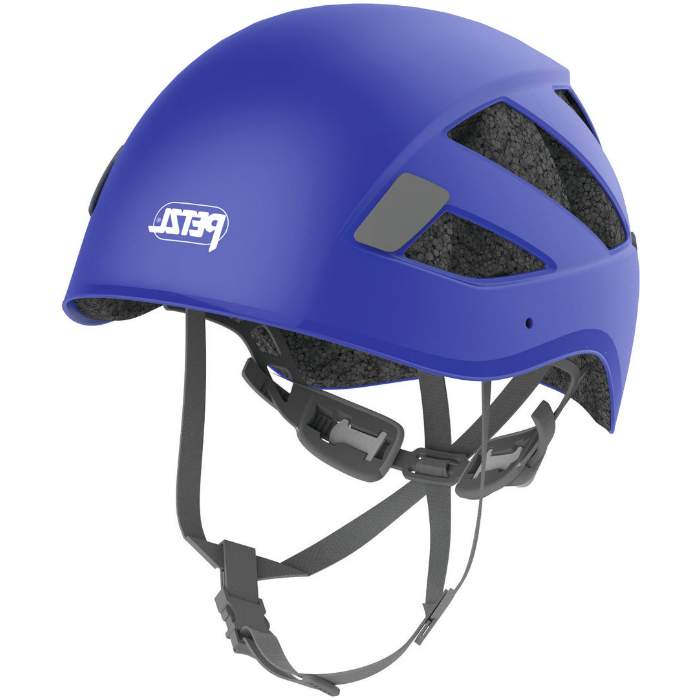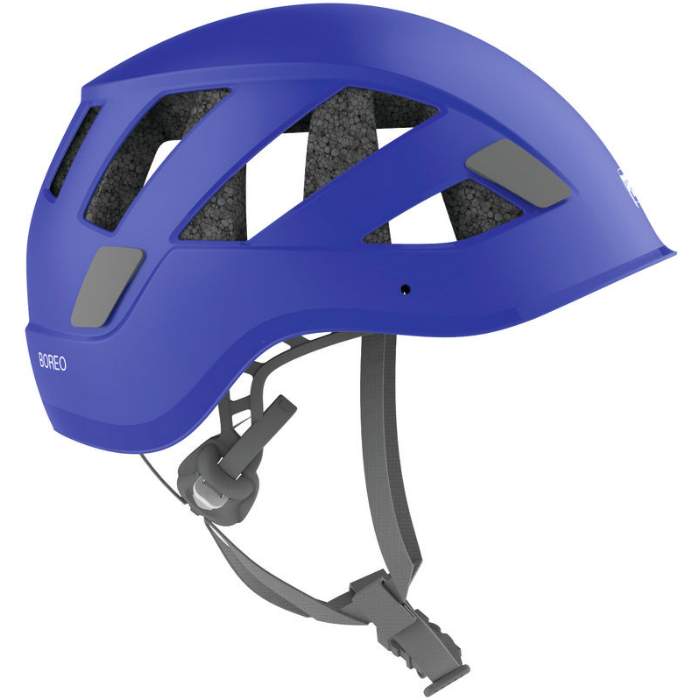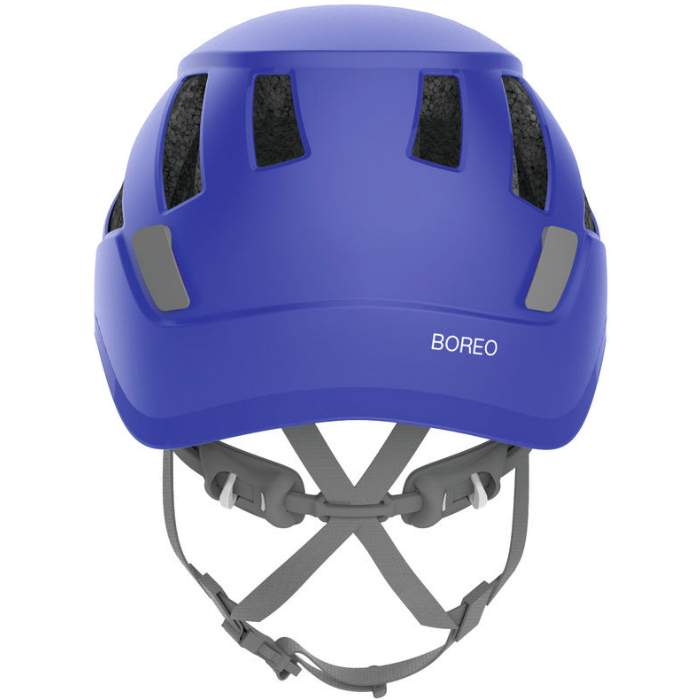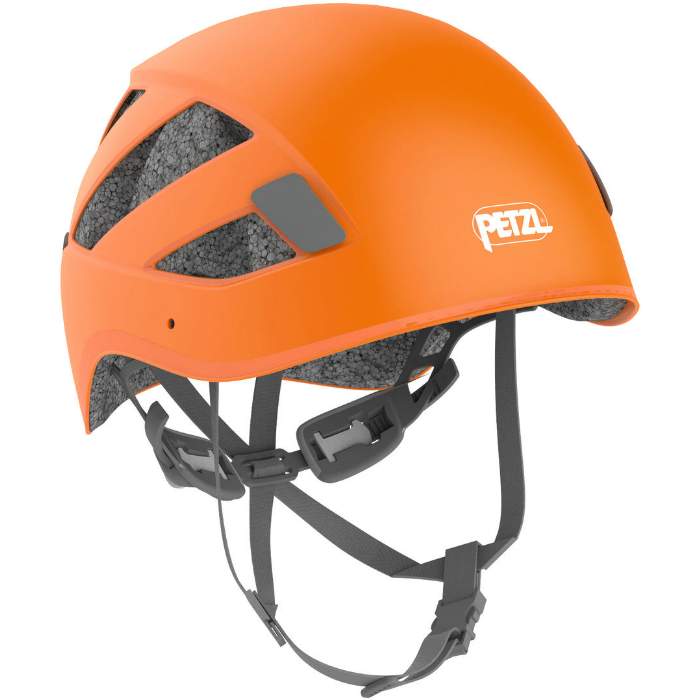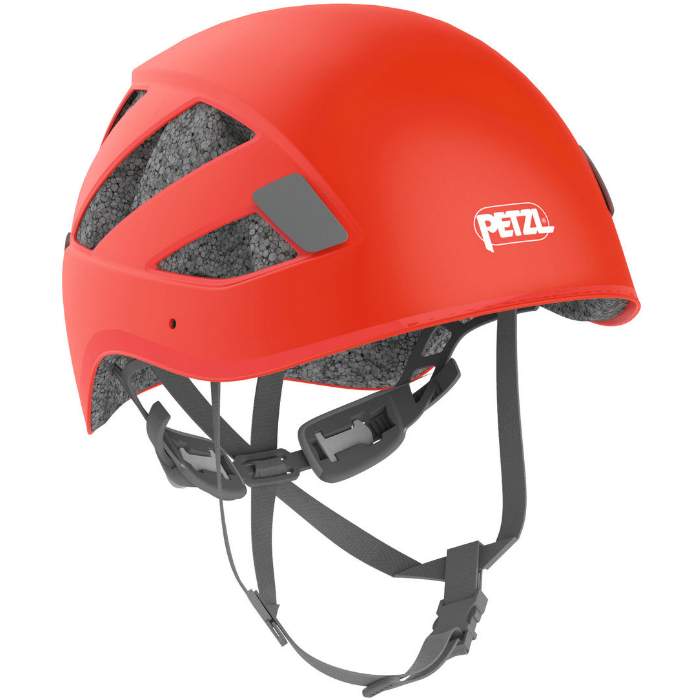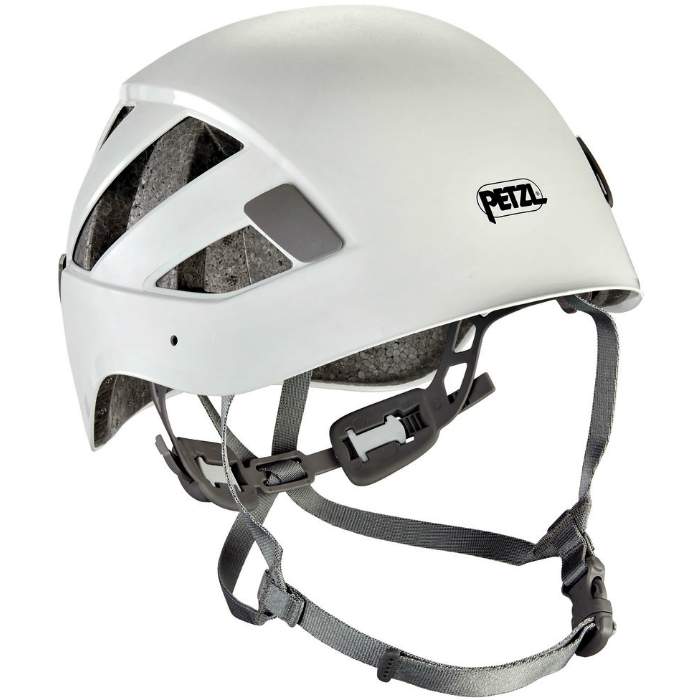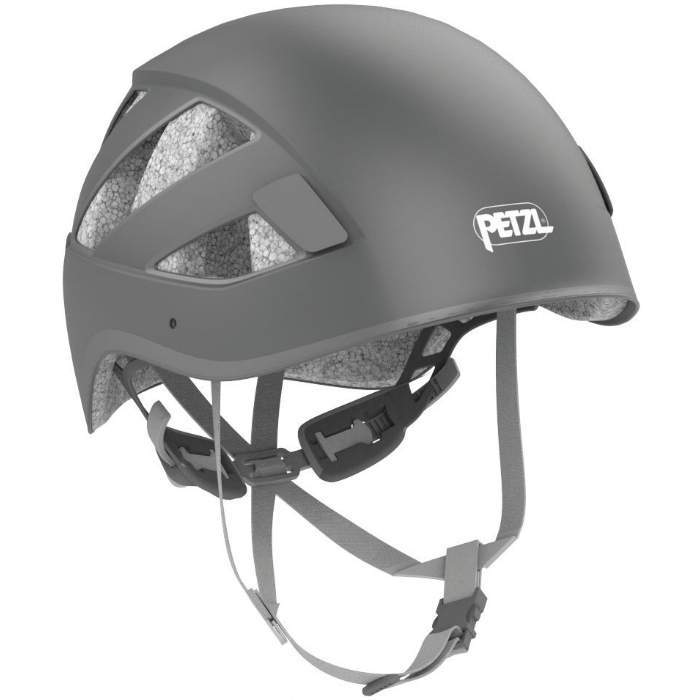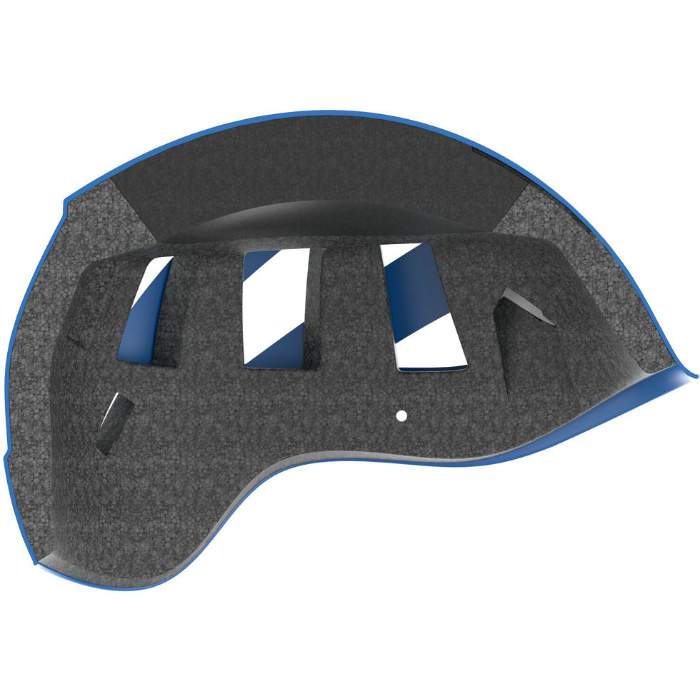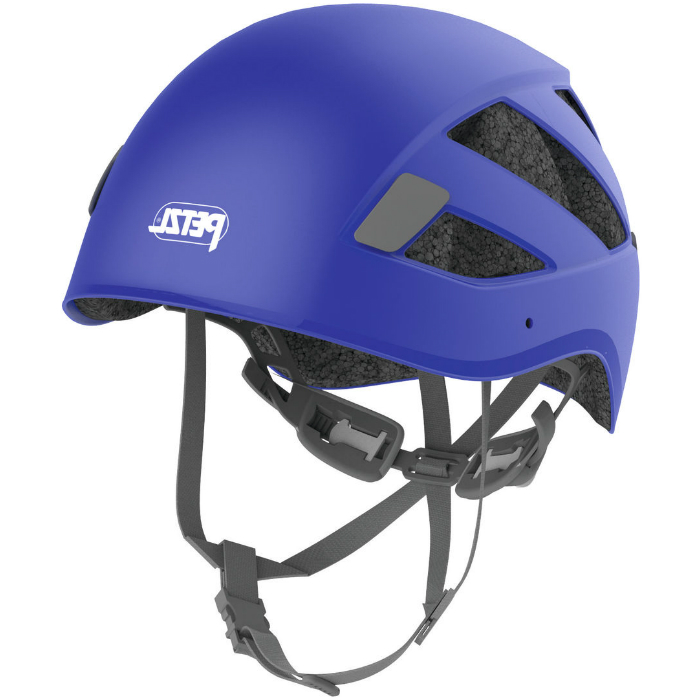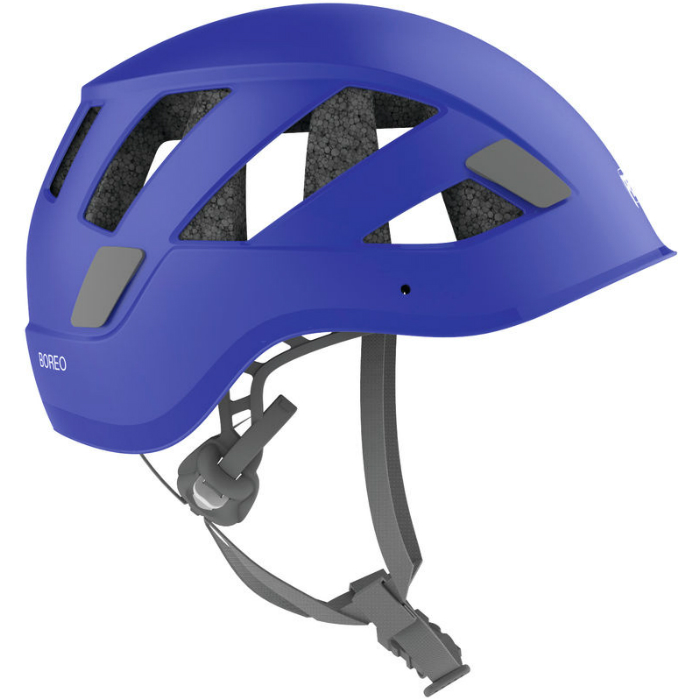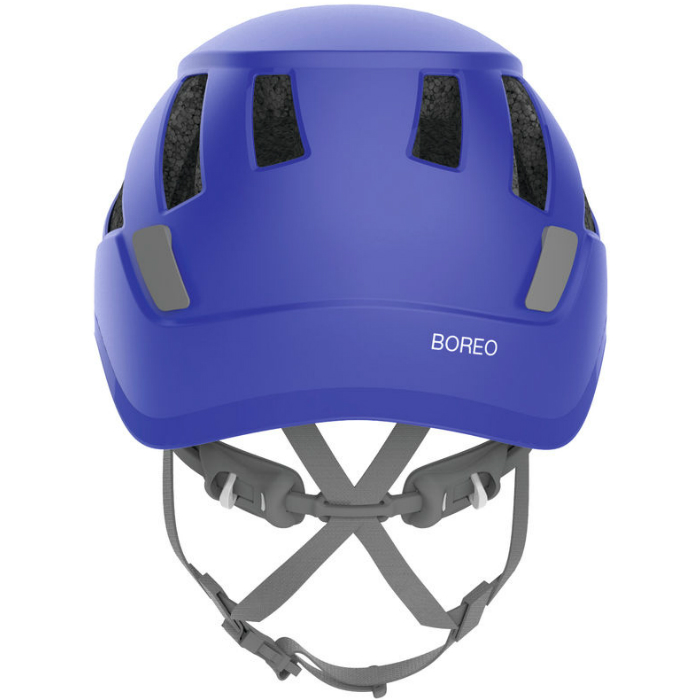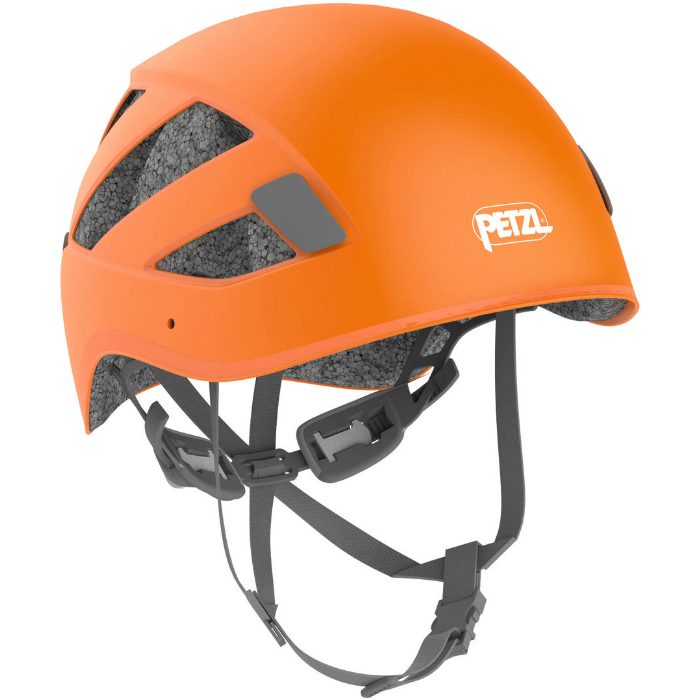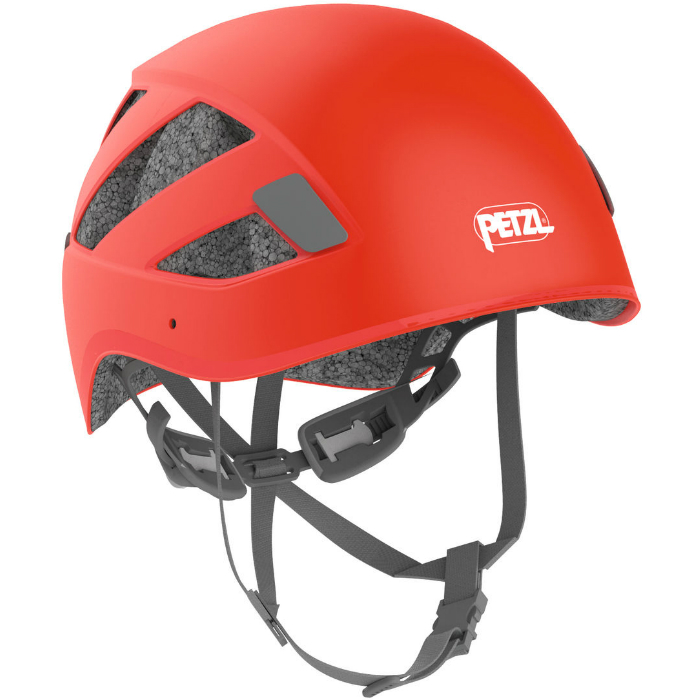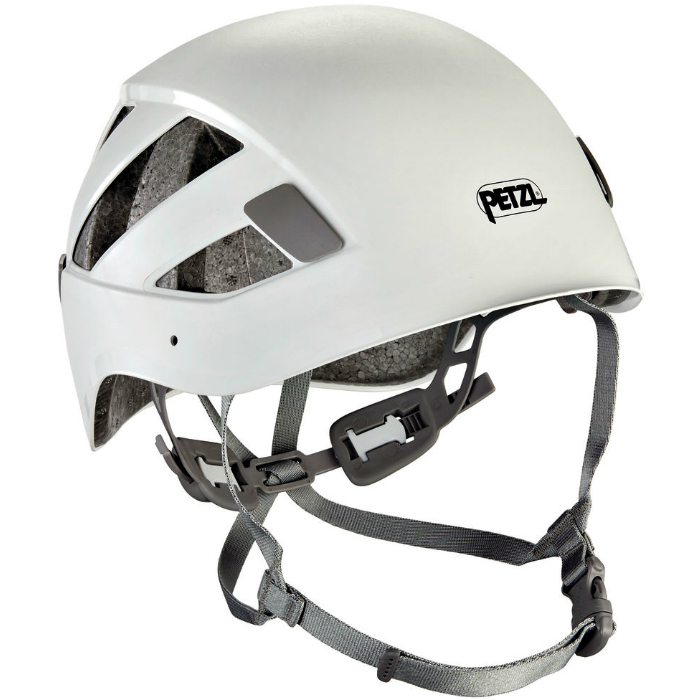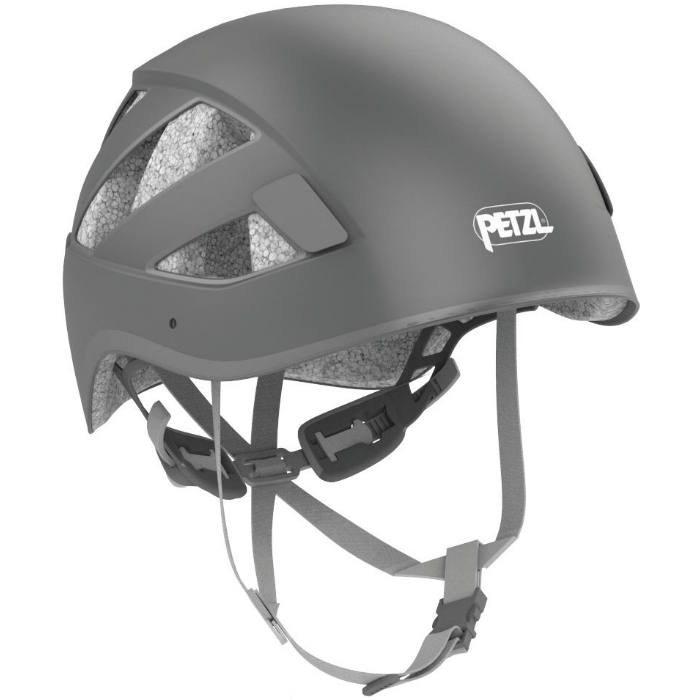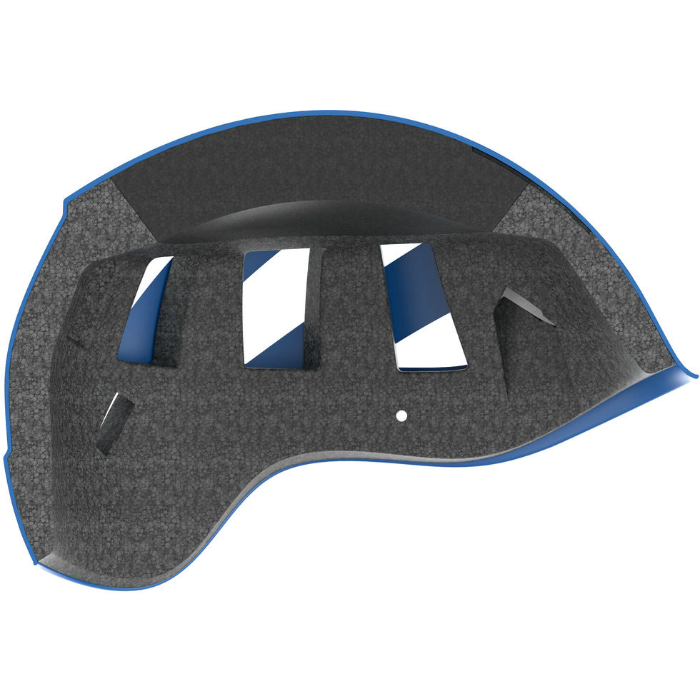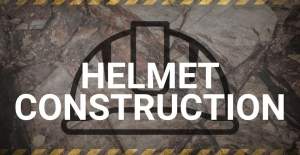How to use the Boreo, various instructional photos of Boreo including inspection and techniques.
Boreo 2022
Description
Durable and versatile helmet with reinforced protection for climbing and mountaineering.
Durable and very versatile, the BOREO helmet is suitable for climbing, mountaineering, caving, via ferrata, canyoning... Thanks to its hybrid construction, the helmet is both compact and head-covering. Protection against lateral, front and rear impact is reinforced. Optimized volume on the head and wide ventilation holes make it a comfortable helmet for all activities.
Description
- Rugged:
- hard outer shell is impact and scratch resistant for optimal durability
- hybrid construction with thick ABS shell, an EPP foam liner and an EPS foam liner makes it compact on the head
- soft headband conforms perfectly to the shape of the head and folds into the shell for storage and transportation - Head-covering design for optimal protection against lateral, front and rear impact:
- carries Petzl's TOP AND SIDE PROTECTION product label
- head-covering shape, lower in the rear, offers reinforced protection
Specifications
- Material(s): ABS shell, expanded polypropylene (EPP) liner, expanded polystyrene (EPS) liner, polyester webbing
Retail price
This Product is Hard to Find.
We don’t know where you can buy this item online in the US. We’ll continue to check all the major retailers and will update this page as soon as we find one.
If you know where to find this online in the US, let us know, and we’ll add the link.

Weight (g)  Weight (g)In grams, the weight, as stated by the manufacturer/brand. If there are differences in weight (due to multiple size or optional accessories) we note those here. | 285 g S/M: 285 g / 10.1 oz |
Gender  GenderThis is the gender as stated by the manufacturer/brand. We use the term "Men" and "Unisex" interchangeably, as there is no difference between these types of helmets. |
Unisex |
Size Range  Size RangeThe sizing options of the helmet according to the manufacturer. | 19.00 in - 24.02 in S/M: 48-58 cm / 19-23 in |
Features  FeaturesBike Cert (EN 1078)The EN certification for helmets used for bicycling and skating. The major difference in testing 1078 involves needs for more head coverage and for the helmet to pass a deflection or 'roll-off' test of the impact force. BrimHaving a brim on a helmet may be inconsequential to some climbers but they make a great additional bit of protection against sun, rain and falling debris like small rocks or verglass. Multiple SizesThis is helpful for those with particularly small or large heads because helmets that come in 2 or 3 sizes cover a broader range of head size. Usually these are denoted as size 1 or 2, though some brands have S/M and M/L. Face Shield CompatibleFace shields are a part of PPE that could be handy when drilling, developing and cleaning particularly dirty remote routes. Usually only used by work at height professionals. MIPS technologyMIPS or Multidirectional Impact Protection System is a technology designed to reduce the amount of impact force that makes it to the brain. This is accomplished by adding a low friction cap between the liner and the helmet, allowing the shell to deflect around the head rather than transfer the forces from impact directly to the wearer. Many bicycle helmets include this feature and it is starting to be applied to sports like skiing, motorcycling and climbing. Many MIPS helmets are also EN1078 compliant. Ponytail CutoutSo far these are only found in "women's" helmets. It's a cutout / notch area that accommodates a low hanging ponytail hairstyle. RECCO® reflectorThese are used in locating someone missing or buried in an avalanche and are becoming more common in climbing gear due to the increased popularity of ski mountaineering. Though they are more often sold as something to add onto the helmet than being built into one, some manufacturers have begun to build them in. Ski Cert (EN 1077)The EN certification for helmets used for climbing and skiing. This test is simpler than the EN/UIAA one performed for helmets in general, but increases the amount of force that a helmet must endure. Likely this to simulate the faster speeds involved with downhill skiing impacts versus rockfall or climber accidents. This cert becoming more common in helmets as SkiMo popularity increases and more climbers are adding backcountry skiing to their mountaineering repertoire. |
Multiple Sizes Face shield compat. |
Quick Adjust  Quick AdjustQuick Adjust refers to the straps of the helmet. Do you want the ability to ability to "quickly" adjust the fit. This could be a dial, or other plastic pieces. Really, most climbers don't need to change the fit of the helmet often, unless you're climbing with and without hats, or you have big hair that flattens and then requires tightening after climbing for awhile. |
Yes |
Vents  VentsRefers to openings in the helmet body to allow air flow. Commonly found in most helmets these days, but often more so in foam and hybrid foam helmets than traditional hardshell polycarbonate shells. Learn More
Click here to read more on helmet construction |
Yes |
Headlamp Compatable  Headlamp CompatibleMany helmets include hooks or clips for holding a standard headlamp in place, which is quite useful for the caver or alpinist. Ask any climber who has been benighted and they’ll tell you just how useful this feature can be. |
Yes |
Face Shield Compatable  Face Shield CompatibleFace shields are a part of PPE that could be handy when drilling, developing and cleaning particularly dirty remote routes. This feature isn't very common in climbing helmets and usually only used by work at height professionals. |
Yes |
| Certification | CE, EN, UIAA |
No reviews yet.
If you’re looking for one do-it-all climbing helmet that will hold up to lots of mileage and give you an extra piece of mind about protection from rock fall as well as taking sideways whippers when you break a hold unexpectedly, you’d be hard pressed to find a better solution than the Boreo.
The Boreo is an affordable, comfortable, durable, helmet that offers the additional piece of mind of passing Petzl’s side protection tests in addition to UIAA and CE testing standards. It’s not the lightest option out there, but if you’re looking for an everyday helmet that offers increased protection from side, front, and rear impacts, the Boreo is definitely worth a look.
The Petzl Boreo is the most durable and protective climbing helmet I have reviewed to date. The focus on increased side and rear impact protection is proof of Petzl’s forward thinking design and desire to not only meet existing standards but go beyond. The Petzl Boreo is a great choice for not only rock and ice climbing but for ski mountaineering pursuits. While ounce counters might not like the relatively high weight those looking for value in a long lasting highly protective helmet wouldn’t find many options as appealing as this one. I think this is an excellent choice as a “first” helmet and its durability will likely keep it in your kit for certain missions throughout your climbing career.
Typically, I’m a medium in just about everything, but I am a M/L in the Boreo (size options are S/M and M/L). If you’re unsure, size up, which also guarantees that you can get a beanie under there in colder temps. Adjusting the helmet is intuitive and easily done while it’s on your head, or, assuming you’ve got a no-hands rest, when you are on route. A pet peeve of mine is when the side straps dig into your ears. Thankfully, the Boreo’s straps were barely noticeable. Sleek headlamp clips adorn the front and rear, and with ten ventilation holes, it breathes. Lateral protection is ample, and its rear drops down to the concave back part of your skull. Inside, the liner pads can be unvelcroed for easy washing. At around $65, it’s hard to go wrong with this one.
Tough, protective, comfy and well fitting, the BOREO is great value at £55. With head coverage that comes low at the sides and rear, and an impact absorbing lining right down to the rim, the amount of protection on offer inspires confidence. It's neither the lightest nor the coolest of Petzl's helmets, but while it's not the best choice for hotter weather, or fast-and-light purists, it makes up for this with durability. If you're dishing out abuse, the BOREO can take it. For me this makes it particularly good for winter use. If you're just buying one helmet for a bit of everything, from cragging to winter mountains, this would be a great choice.
The Petzl Boreo is our Top Pick as the most Rugged and Protective helmet in this review. If protecting your dome piece at all costs is your number one priority, then we don't think you could find a better option. It is also affordable, reasonably comfortable, and accommodates a headlamp very well. While the very lightest helmets are tantalizing, the Boreo is one you can rely on.

